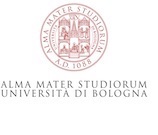THE CRITICAL TASKS OF THE UNIVERSITYInternational Consortium of Critical Theory Programs (UC Berkeley)
|
PANEL 4Politics of Knowledge: Theory, Culture, SocietyChair: RITA MONTICELLI (University of Bologna)
“A Partial Education”
STEFANO HARNEY (Singapore Management University)
“The (post) University as a 'Commonfare' Institution Between Social Cooperation and Technological Mediation”
TIZIANA TERRANOVA (University of Naples L’Orientale)
Respondent: MANUELA BOJADŽIJEV (Leuphana University of Lüneburg)
|
|
MANUELA BOJADŽIJEV is Professor at the Institute for Sociology and Cultural Organization at Leuphana University of Lüneburg and a member of the Berlin Institute for Integration and Migration Research (BIM) at Humboldt University, Berlin. She specializes in migration and racism in Europe, and in cultural theory. Her major publications include a monograph on theories of racism and the history of migrants’ practices of resistance (Die windige Internationale, 2008) and co-edited volumes on: the transformation of the EU migration regime in South East Europe (Turbulente Ränder: Neue Perspektiven auf Migration an den Grenzen Europas, 2007); critical accounts of Europeanization (Europa dezentrieren: Beiträge zu einer reflexiven Anthropologie globaler Verflechtungen, forthcoming); labour, migration and logistics (Logistische Grenzlandschaften, forthcoming); as well as a handbook on theories of racism in Germany (forthcoming).
|
STEFANO HARNEY teaches at Singapore Management University in Singapore. He is co-author with Fred Moten of The Undercommons: Fugitive Planning and Black Study (Minor Compositions, 2013) and most recently with Moten of “Use and Usufruct” in Gaye Theresa Johnson and Alex Lubin (eds.) Futures of Black Radicalism (Verso, 2017) and “Indent: To Serve the Debt” in Johanna Burton et al. (eds.) Public Servants: Art and the Crisis of the Common Good (MIT, 2016). He curated the show “Shipping and the Shipped” at the Bergen Assembly triennial in 2016 as part of the freethought collective. With Tonika Sealy Thompson he runs the residency and study project Ground Provisions.
|
RITA MONTICELLI is Associate Professor at the Università di Bologna where she teaches English literature, gender and cultural studies, theories and history of culture in the Department of Modern Languages, Literatures, and Cultures. Her research interests include memory and trauma studies, the global novel, utopia, and dystopia. She is currently working on cultural memory and trauma in contemporary dystopian fiction and visual culture. She is a member of the international European research networks and M.A. and Ph.D. programs EDGES, GEMMA, and GRACE, centered on gender studies and cultures of equality. Monticelli also directs the Centre for Utopian Studies at the Università di Bologna.
|
TIZIANA TERRANOVA is Associate Professor in Cultural and Media Studies at the Università degli Studi di Napoli L’Orientale, where she is also a member of the Centro di Studi Postcoloniali e di Genere and founder/member of the Technoculture Research Unit. From April to June 2017, she is a Fulbright Distinguished Scholar at Northwestern University. Terranova has been the recipient of numerous fellowships and has participated in a number of international research projects. She is the author of two books, Corpi nella rete (Costa e Nolan, 1996) and Network Culture: Politics for the Information Age (Pluto Press, 2004), which appeared in Italian as Cultura Network: Per una micropolitica dell’informazione (Manifesto Libri, 2006). Her book Hypersocial: Network Cultures between the Market and the Common is forthcoming from the University of Minnesota Press. She has published numerous essays for edited collections and peer-reviewed journals and is a member of the editorial boards of the journals Theory, Culture and Society, Studi culturali, New Formations, Fibreculture, and Subjectivity. Terranova recently edited a special section of Theory, Culture and Society on “Eurocrisis, Neoliberalism and the Common” and, with Iain Chambers, a special issue of the journal Anglistica on “Inflections of Technoculture: Biodigital Media, Postcolonial Theory and Feminism.”
|



